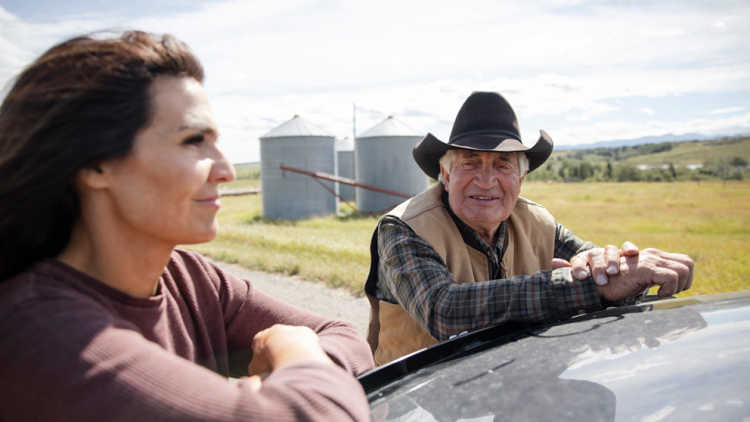How managing conflict can help you with farm transition talks

When it comes time to gather as a family and discuss transition planning, emotions of all descriptions rise.
With thoughts and opinions given equal consideration between family members, this can be a positive experience, but it’s rarely that, says Elaine Froese, a farm family coach based in Manitoba.
Conflict as risk management
“Reframe your mindset about how you see conflict and intense conversations,” Froese says. “Conflict shouldn’t be avoided. It’s meant to be embraced as a risk management strategy. Being clear is kind.”
Reframe how you see conflict during transition talks. Embrace it as a risk management strategy.
Froese has sat with hundreds of farm families and witnessed every type of disagreement imaginable – from the man sued by his sisters over their late parents’ hand-written will, to the non-farming son who demanded inheritance from his aging mother.
The main areas of conflict during transition tend to be long-standing:
balancing the interests of the next generation looking to carry on the farm and the off-farm children no longer involved
married-in spouses and their treatment
overall non-communicative family members
Clarification needed
Overall, conflict resolution tends to boil down to a sense of fairness and what will work for the older generation and the incoming generation for the farm business.
“Families certainly need clarity of expectations, agreements and a commitment to act,” Froese says, adding that sometimes that can only be achieved through a facilitator.
Part of her solution is to put a literal pen to paper in the form of a letter.
“Put your thoughts, fears, frustrations, intentions down, in a Word document, print it out and deliver it,” she says, explaining that the words allow the reader to process and understand the writer's feelings.
Identifying fair
Similarly, Alberta-based farm mediator Reg Shandro, knows that for farm transitions to be effective and possible conflict eased, the financial components must be discussed and recorded, including trying to reach an agreement on fairness. Dealing with the straight facts can help guide the conversation, he says.
“How do you identify fair?” Shandro says. “It’s a mathematical exercise first before you go and consider the heart components.”
Shandro says there are four key elements to remember during transition talks. Understanding others' thoughts on these help in this important process – and can help manage conflict.
Perspective
People often see the same thing but filter it through their upbringing and experiences. It’s not wrong – it’s just different, Shandro points out.Change
There’s always going to be change, and it’s natural to be afraid of it. However, Shandro says, during transition change must ultimately be embraced for any positive result to be achieved.Choice
Everyone typically disagrees on one or more issues at some point during farm transition talks. However, healthy disagreements often lead to sensible decisions that are more amicable than if the conversation never took place, Shandro says.Fairness
Often the most common source of conflict, Shandro says, is what is considered fair is always in the eye of the beholder. During transition discussions, know what everyone else considers fair. That understanding may help families move towards a fair transition for everyone.
Bottom line
Emotions can run high during transition planning with family members, and conflict can often bubble to the surface. Consider conflict as a risk management strategy, experts say, and a chance to gain a deeper understanding of family members' thoughts and dreams for the farm. Conflict can also be managed by being mindful of the perspective and choice others make, and how they deal with change and their perception of fairness.
Article by: Trevor Bacque

Transferring land fairly among on-and off-farm children can be tough. Here’s advice and questions to make the process go smoothly.